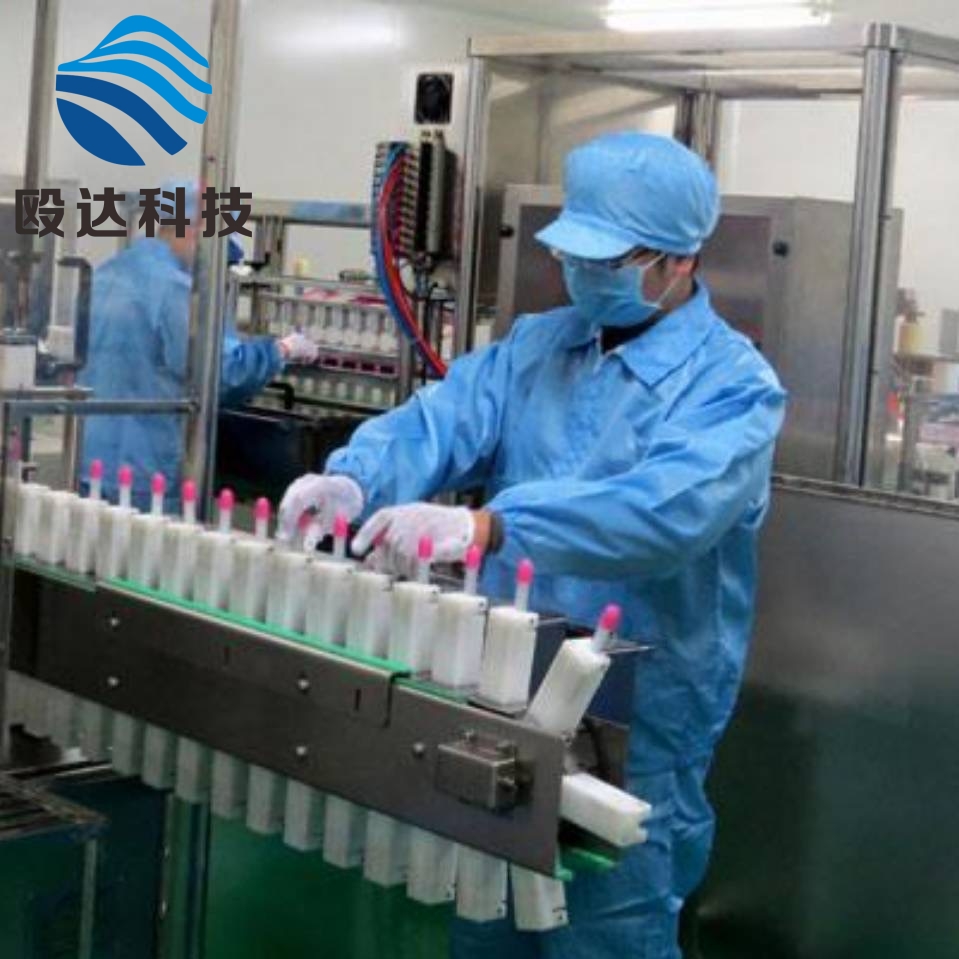-
Categories
-
Pharmaceutical Intermediates
-
Active Pharmaceutical Ingredients
-
Food Additives
- Industrial Coatings
- Agrochemicals
- Dyes and Pigments
- Surfactant
- Flavors and Fragrances
- Chemical Reagents
- Catalyst and Auxiliary
- Natural Products
- Inorganic Chemistry
-
Organic Chemistry
-
Biochemical Engineering
- Analytical Chemistry
- Cosmetic Ingredient
-
Pharmaceutical Intermediates
Promotion
ECHEMI Mall
Wholesale
Weekly Price
Exhibition
News
-
Trade Service
The global pandemic of COVID-19 has so far infected more than 10 million people and killed more than half a million people.
testing antibodies against the new coronavirus, especially IgG and IgM, contribute to the diagnosis of new coronavirus infection and is a powerful complement to nucleic acid testing.
the antigens identified so far are mainly nuclear shell protein (N protein) and stinguride glycoprotein (S protein), the identification of antigens of other proteins of the new coronavirus is still blank.
, exploring whether the strength of antibody response in a patient is related to age, gender, disease progression and severity will help us to better understand the interaction between viruses and the body's immune system, which is important for intervention in treatment or vaccine development.
therefore, it is necessary to analyze the type and intensity of viral-specific antibodies in the serum of patients with new coronary pneumonia from the system level.
July 14, 2020, The Tao Shengze team of Shanghai Jiaotong University, the Team Zhou Jie of foshan Fourth People's Hospital and the Mendong Team of the Wuhan Virus Research Institute of the Chinese Academy of Sciences, in collaboration, published on Nature Communications a global analysis of IgG/IgM antibody response based on the recovery phase serum of the new SARS-CoV-2 proteomic chip patients: SARS-CoV-2 proteo-micro-for-global
the team synthesized a full set of SARS-CoV-2 pronuclear expression clones and shared them for free (in order to make it easier for more scientists to obtain, the team has put the clones on the plasmid-sharing platform of the Suzhou Institute of Biochemical Cells of the Chinese Academy of Sciences and authorized them to share them later).
and successfully built the first SARS-CoV-2 proteomic chip on the basis of this expression clone library.
the chip covers 18 proteins encoded by the genome of the new coronavirus, and multiple versions of the protein are available from multiple sources, such as E.coli expression, mammalian cell expression, and cell-free system expression.
the layout of the chip, quality control and preliminary serum test results.
based on this chip, the team conducted a comprehensive analysis of serum IgG and IgM antibodies in the new crown patients.
the first 29 cases of new coronary pneumonia patients were from Foshan Fourth People's Hospital, of which 3 cases of mild patients, 26 cases of general type patients, no serious or critical patients.
serum is collected on the day the patient is discharged from the hospital for the healing period.
, 11 healthy control sand and 10 lung cancer control samples were included.
based on the SARS-CoV-2 proteomic chip, Each serum was tested for IgG and IgM.
response map for IgG is shown in Figure 3.
by clustering the response signals of each sample against all antigens, it was found that the patient group, control group and blank group were well clustered into three groups, of which S1 protein and N protein generally had a strong antibody response in patients, while the control group was almost all negative, confirming the effectiveness of the two antigens in immunodiagnostic diagnosis. Further analysis
found that in the control group, 2 cases of serum against N protein have strong signals, indicating that N protein may be false positive.
, a detailed quantitative analysis of the antibody response of proteins from different sources found that both primary and nuclear expression, mammalian cell expression, or cell-free expression systems had good detection results, but 293T-sourced proteins produced a lower background in the control group, or meaning better differentiation.
in addition to The S1 protein and N protein, some patients also have a strong response to other proteins for the new coronavirus.
especially the protein ORF9b, in 29 patients in the serum 13 cases of IgG positive, NSP5 in 3 cases of serum IgG positive, NSP10, NSP14, NSP16 and so on in 1 patient SEG positive.
Although the sample size analyzed is small, these preliminary results suggest that other new coronavirus proteins other than N and S proteins may also produce antibodies, suggesting that these proteins may have important physiological or pathological effects.
finally, the study analyzed the correlation between The IgG response of S1 and N protein and the clinical information of patients, excluding the effectofs of onset time (the time of first symptoms to the time of sample acquisition), and found that the antibody response of S1 or N protein was significantly positively correlated with the time of blood collection, age, and lactic acid dehydrogenase (LDH) after diagnosis, and negatively related to the percentage of lymphocytes (Ly%).
and antibodies from the serum of 3 patients with mild disease were at lower levels, a correlation that suggested that the antibody response was or were closely related to the severity of the disease.
these observations or cues, the body may be more responsive for young people, while older people need to mobilize a stronger immune response.
it is worth noting that the current analysis still has limitations, and more different types of samples are needed, and more comprehensive clinical association analysis is needed to obtain more definitive conclusions.
the chip has been updated, and the latest version of the chip covers 21 proteins encoded by the genome of the new coronavirus.
comprehensive serum analysis based on the chip can help us to reveal the immune response patterns of different populations after the new coronavirus infection as soon as possible.
, the chip can also be used, but not limited to, the following: 1. Serological analysis.
a comprehensive study of the virus-specific antibody response and its dynamic changes caused by the new coronavirus will help us understand the body's immune response process and identify the virus's dominant protein antigen;
dynamically monitoring the level of antibodies in the serum of the vaccine for various protein components and associating it with defense capabilities will help the screening and early evaluation of the vaccine, and accelerate the development process of the vaccine.
3. Virus-host interaction study.
conducted research on the interaction between host key proteins and viral proteins to help reveal key mechanisms such as virus infection and replication synthesis, and to give potential target proteins for drug development research.
co-authors of this study are Dr. Jiang Hewei, Dr. Li Yang, Dr. Zhang Hainan and Dr. Wang Wei of the Fourth People's Hospital of Foshan City, and the communication authors are Tao Shengze Researcher of Shanghai Jiaotong University, Zhou Jie, President of the Fourth People's Hospital of Foshan City, and Andong Associate Researcher of Wuhan Virus Research Institute of the Chinese Academy of Sciences.
.







